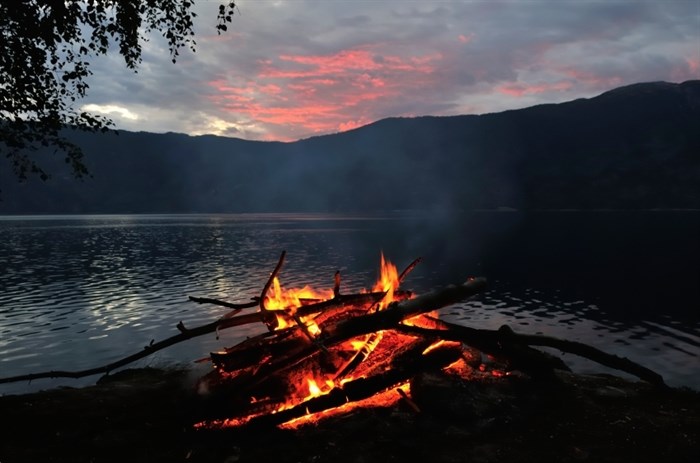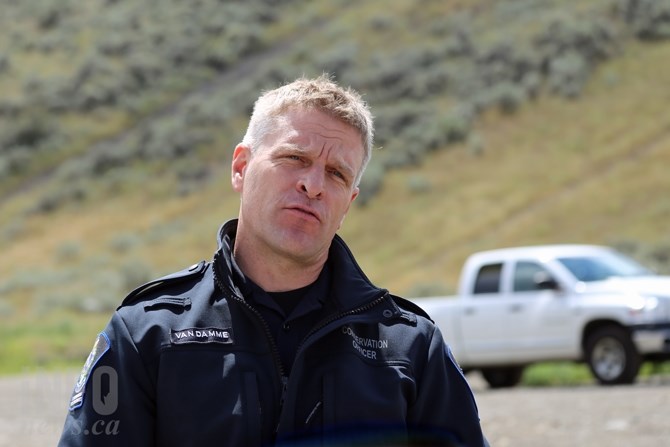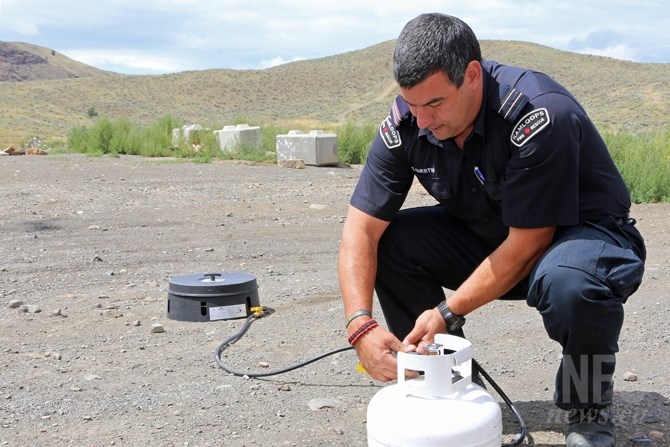
Image Credit: istockphoto.com
July 27, 2015 - 10:37 AM
KAMLOOPS - That cigarette butt tossed on the ground, the sparks from your off-road vehicle, that campfire you were sure was safe. You can be fined by multiple agencies for any of these transgressions if you’re caught.
And in the midst of a major fire season, the agencies in charge of fining you are not just waiting for reports to come in, they are proactively looking for you.
These fines can go to more than one person in a group as well. When it comes to any activity which could cause fire, anyone taking part in the activity, including simply standing around the fire, can be fined.
Currently fines easily range from $81 to $500, and additional charges for the cost of dealing with a fire if it spreads can be completely handed off to the person responsible as well. Fines are available under a variety of acts including the Motor Vehicle Act, Wildfire Act, municipal bylaws and the Environmental Management Act. The province is looking into possible changes to make it easier to charge people who cause wildfires.
Enforcement does happen, but circumstances are different in every case and according to those enforcing the regulations they have to use their discretion.
In Kamloops there are typically a few complaints of open fires or campfires every month, though Okaganan fire crews are answering multiple complaints of people having fires in their yards this summer.
Sheldon Guertin of Kamloops Fire Rescue says sometimes when they follow up it is an allowable device being used. If you do get caught lighting a fire in Kamloops it comes with a $500 fine, per person at the fire, as well as the cost of suppression. That bill can easily reach $1,000, plus the fine. Fines in the Okanagan are listed into the thousands of dollars for not complying with an open burning ban or failing to get a permit.
A recent case in Kamloops had people charged $1,000 each for littering after the pallets they dumped were ignited. Guertin says they weren’t able to prove the men were responsible for the ignition, but they were responsible for the fuel supply, which allowed them to charge each with littering. The cost to fight that fire was more than $70,000.
B.C. Wildfire information officer Kayla Pepper notes she has seen large fires easily reach costs of $250,000 per day. Under the B.C. Wildfire Act every person at a fire can be fined as well. You don’t need to be the one to have lit the fire, you just need to be standing around it.
SOCIAL MEDIA ‘GUILTING PEOPLE INTO DOING THE RIGHT THING’

Conservation officer Kevin Van Damme says his service proactively seeks out people in non-compliance when it comes to fire use.
(JENNIFER STAHN / iNFOnews.ca)
Kevin Van Damme with the conservation office says they try to be proactive and will go out looking for those not complying every weekend, but they also respond to a lot of reports from the public.
He says social media has really helped get the message out to people, but it also makes people scared of being shamed in front of friends, family and neighbours as well.
“This year is the highest compliance, and for one reason — social media,” he says. “It puts the pressure on people… that’s what guides peoples behaviour. (It’s) guilting people into doing the right thing.”
He notes many people understand what they are doing is technically wrong but think their circumstances are different, that they are being safe. In a lot of those cases fines are kept on the lower end and those responsible have to help clean up the site and are expected to help spread the word.
“Our goal is compliance, and for people to understand there’s consequences,” Van Damme notes. “We look at the facts, the people. Discretion is something most all of us have to do.”
According to both Pepper and Van Damme attitudes have changed significantly from 10 years ago.
“Attitudes are completely different from the early-2000s,” Van Damme says of campfire bans specifically. “We had very little buy in, today the buy in is extreme. People are respecting that conditions warrant it.”
Cpl. Cheryl Bush of Kamloops RCMP says 2003 is when the real change started in how people viewed wildfires.
“In ’03 it became reality for a lot of people, between the McLure and Kelowna fires. They realized we’re not immune to this,” Bush says.
Van Damme says those stories of people losing their homes in those fires still resonates with people, which helps with compliance as well.
HIGH RISK CONDITIONS HEADING INTO FIRE SEASON PEAK

Sheldon Guertin of Kamloops Fire Rescue shows how to use properly use a propane device allowed under a campfire ban.
(JENNIFER STAHN / iNFOnews.ca)
As of Friday morning, July 24, 61 new fires had popped up in the fire centre, and six grew large enough to warrant evacuation alerts or orders. Many of those were lightning-caused.
“These are fire prone areas. Even if we curb human-caused ones there will still be lighting ones,” Pepper says. “With the current conditions we’re going into in August, it’s definitely a high risk. August is usually were we see fire season peak. We already have out of province resources, over 1,000 contractors… it’s crucial everyone is doing their part to not contribute to the wildfire problem.”
While there is a campfire ban throughout much of the province there are allowable products that can be used. Anything CSA or UL approved which is propane, natural gas or charcoal briquettes is acceptable, as long as you are following manufacturer recommendations and follow proper size and distance guidelines set by the act, which means keeping the flame under six inches and having water or a shovel nearby just in case.
If you are a smoker, Guertin asks you carry a bottle half-filled with water to dispose of your cigarette butts safely. Other tossed garbage, such as glass, can also start fires and needs to be disposed of properly.
To contact a reporter for this story, email Jennifer Stahn at jstahn@infonews.ca or call 250-819-3723. To contact an editor, email mjones@infonews.ca or call 250-718-2724.
News from © iNFOnews, 2015